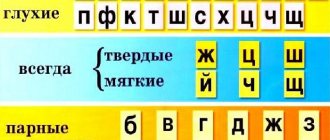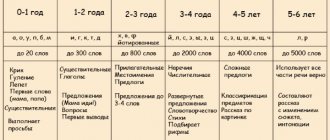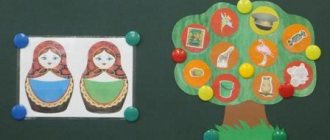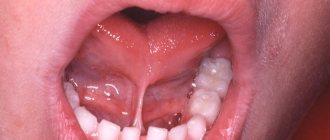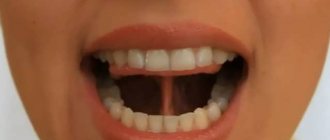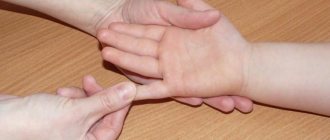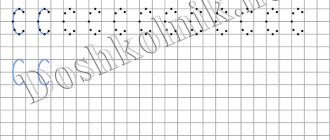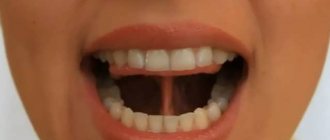Automation of sounds K and Kb
Article:
SOUND K. (No. 1)
1. Articulation gymnastics.
2. Automation of the sound [k] in syllables.
| ka-ko-ku-ky | ko-ku-ka-ka | ku-ky-ka-ko | ka-ka-ko-ku |
| ak-ok-uk-yk | ok-uk-yk-ak | uk-yk-ak-ok | yk-ak-ok-ku |
| ak-ak-ak-bak, poppy, so; | ok-ok-ok- current, side, juice, dock; | ||
| uk-uk-uk-knock, beech, grandson, spider; | yk-yk-yk- bull; | ||
| ik-ik-ik - peak, broom, date; | ek-ek-ek- century, running, snow; | ||
| yak-yak-yak- lighthouse, yak. | |||
3. Listen and repeat. Circle the droplets.
Rain, rain, have fun! Drip, drip, don't be sorry! Cap! Cap! Cap!…
4. Guess the word that
ends with the sound [k]: uro..., dru..., stu..., sapo..., then..., kri..., suro..., veni..., shnuro..., poro..., kato..., zamo..., wandered..., zna..., clo... , tres… .
5. Automation of the sound [k] in words.
Buck, poppy, so, flywheel, spider, turkey, knock, beech grandson, bull, side, dock, tobacco, stream, honey fungus, ration, broom, boot, oak, skein, hunter, hammer, tube, date, traveler, peak , yak, lighthouse, kayuk, dead end.
SOUND K. (No. 2)
1. Guess the riddle. Circle the answer.
We are green like grass Our song: “Kwa-kwa.”
2. Guess the word, starting it with the sound [k], [k']:
...okos, ...ist, ...ino, ...niga, ...oshka, ...it, ...mouth, ...ring, ...ex, ...oldun, ...ofe, ...ost, ...amen, ...well done, ...orova.
3. Automation of the sound [k] in syllables.
| Kwa-kwo-kwu-kwa | kna-kno-knu-kny |
| Kwo-kwo-kwo-kwo | kno-knu-kny-kna |
| Kwu-kwa-kwa-kwo | knu-kny-kna-kno |
| Kwa-kwa-kwo-kwo | kny-kna-kno-knu |
4. The names of which pictures sound similar?
5. Game "Fun Score". Count the ducks.
SOUND K. (No. 5)
1. Repeat pure sayings.
| ka - ka - ka - our burden is not light; | The ball of thread rolled into the corner. |
| ko - ko - ko - ran away far; | Klava put the onion on the shelf, |
| ku - ku - ku - we buy flour. | Nikolka called to her. |
2. Game "One-many".
| Boar - wild boars | cabin - cabins, | stone - stones, |
| ditch - ditches, | trap - traps, | horse - horses, |
| cat - cats, | rope - ropes, | comet - comets, |
| candy - candy, | team - teams, | room - rooms. |
3. Game "Hide and Seek". Name the pictures.
4. Repeat pure sayings.
| On the coconuts, on the coconuts | There are seven kittens on the bench |
| We swooped in like wasps, | All kittens want to eat. |
| And the coconuts are high | We will pour jelly into a bowl - |
| High and far away.* | Here's a bowl of jelly for you. |
SOUND K. (No. 6)
1. Guess the riddle. Circle the answer.
| They fly without wings, they run without legs, | |
| They sail without a sail. (clouds) |
2. Game "One-many".
| One tank – many tanks | one letter - many letters |
| One poppy - many poppies | one pumpkin - many pumpkins |
| One beech – many beeches | one window - many windows |
| One spider - many spiders | one lighthouse – many lighthouses |
| One bull - many bulls | one turkey - many turkeys |
| One oak - many oaks | one broom – many brooms |
3. Repeat the phrase.
| Pussy, pussy, where's your bowl? | |
| Pussy eats soup from a bowl: | |
| Full pussy - empty bowl. | |
| (Lay out from counting sticks) |
4. Automation of the sound [k] in word combinations.
meow under the window; bathe horses in the Oka; dig a ditch; buy a lump; smoke perch.
5. Game "Hide and Seek". Name the pictures.
SOUND K. (No. 7)
1. Game "Correct the mistake."
| A letter is written to grandfather. | Our mouse caught the cat. |
| My grandmother bought a spool of thread. | The pebble found Pasha. |
| A coat hanger is hung on the fur coat. | Reeds sit in a frog. |
| The lilies of the valley found Natasha. | They put a bag inside the potatoes. |
2. Game "Funny Counting".
3. Automation of the sound [k] in words.
How, cockatoo, cocoa, what, rim, trap, croak, cot, kok, cocoon, lump, penny, button, cube, cup, purchase, picnic, horse, duck.
SOUND K. (No. 1)
1. Automation of the sound [k'] in syllables.
| kya-kya - kya-kya-kya | kya-ke-kyu-ki |
| ke-ke - ke-ke-ke | ke-kyu-ki-kya |
| kyu-kyu - kyu-kyu-kyu | kyu-ki-kya-ke |
| ki-ki - ki-ki-ki | ki-kya-ke-kyu |
2. Automation of the sound [k'] in words.
Kiwi, nod, cinema, Kim, kippa, skates, cubes, poppies, cap, cap, buoy, whale, boiling water, boots, Nikita, bouquet, package, ocean, hemp, sneakers, descendants.
3. Automation of the sound [k'] in phrases.
buy poppies; wear a cap and sneakers; nod to Nikita; put on a cape; drink boiling water; cubes in a bag; Nikitin's boots; go to the cinema.
4. Repeat pure sayings.
| There is a whale in the ocean, boiling water for the whale. | We buy items: |
| Svetka buys a cap with a label. | For Nikita those purchases |
| And for Kim those purchases. | |
| And in shopping ducks, pipes, | |
| Cubes and forget-me-nots. |
5. Game “What’s missing?” (hands, paws, legs).
Causes
To understand how to set the sound correctly, you need to know the root cause of the deviation from the norm. The occurrence of erroneous or complete absence of pronunciation of the sound “K” and “K” is influenced by the following factors:
- Organic defects associated with abnormal structure of the speech organs:
- abnormalities of the upper part of the oral cavity. The palate may be too high, soft, narrow. The soft part is hard and vice versa.
- the baby’s inability to distinguish sounds by ear (phonemic deviations);
- weak tongue muscles;
- poor sensitivity of the tongue muscles;
- mild physical hearing impairment.
- Social factors:
- omission of parents, educators, teachers;
- use of 2 or more languages in the family;
- lack of articulation exercises;
- repeating speech with errors for loved ones.
- A specialist can determine what factor predisposes the child to develop a defect and how to eliminate it. To do this, the speech therapist collects a detailed medical history on an individual basis, examines the condition of the speech organs and draws a conclusion based on the examination.
Exercises to build correct articulation
The importance of articulatory gymnastics has been proven by scientific research. A child’s rapid mastery of reproducing any sound depends on the training of the speech organs. Such techniques are suitable for non-speaking children and the older group of people after an illness (stroke). Each letter has its own exercises.
Basic training sessions to prepare before making the sounds “K” and “K”:
- pancake They open the oral cavity well. The relaxed tongue is placed on the lower lip. Next, alternate a smile with a gloomy expression. The tongue is motionless.
- slide. The baby is asked to open his mouth wide. Bend the tongue to form a slide. Place the tip of the organ on the lower incisors. Hold the position for 10 seconds;
- massage. Exercise to relax muscles. Open your mouth slightly. Move the tongue along the lower lip. Bite it little by little with your teeth;
- the wind was blowing from the hill. To carry out the work, the respiratory system is activated. The child learns to move a stream of air across the tongue. The baby opens his mouth and performs the slide exercise with his tongue. Next you need to take a deep breath. Then exhale gradually, focusing on the position of the middle and root of the tongue. They should block the flow of air to the nasal cavity. It produces a groaning sound. This way you can develop the pronunciation of the phoneme “K”;
- the tongue is a strongman. The child is asked to play a game in which the tongue will resist a foreign object. A clean teaspoon is suitable for this exercise. An adult brings it to the tip of the tongue. The baby needs to try to push the object out of the mouth. The mouth is well open.
Important: the main task of an adult is to achieve the correct position of the tongue. The middle part should rise towards the hard palate and the root of the organ towards the soft palate. The exercise is carried out gradually so as not to overload the muscles.
Expert opinion
Margarita Sergeevna S.
Speech pathologist and speech pathologist with 15 years of experience working in various speech correction centers with children of different ages.
The detailed technology and sequence of exercises will be suggested by a speech therapist, taking into account the child’s abilities individually.
Recommendations for performing articulation gymnastics
Secrets to successfully mastering the exercises:
- Classes are held 2-3 times a day. Duration of execution is up to 5 minutes.
- All movements of the speech organs are repeated 3-4 times.
- Gradual increase in load on the speech apparatus. First, carry out statistical types of exercises (hold the position for 15-20 seconds). Then switch to dynamic ones, increasing the motor activity of the organs.
- Carry out tasks in a playful way.
- Use a mirror for clarity.
Important: you need to start performing a new task after you have mastered the previous one.
Dividing soft sign
The role of the soft sign in the Russian language
So, the soft sign does not mean and has absolutely no sound. The role of this letter in the Russian language is different: it is an indicator of the softness of consonant sounds in writing, and also performs a separating function. The topic “Dividing soft sign” is taught in the subject Russian language in 2nd grade.
Soft sign - an indicator of the softness and form of the word
The soft sign is used in writing to soften the previous consonant sound. If we hear a soft consonant sound in the middle or at the end of a word, then in writing in this place after the soft consonant we should write a soft sign: icicle, eight, bathhouse, stranded.
Also, a soft sign is written after the hissing words at the end of some words to indicate a specific dictionary form. For example, in the word mouse, a soft sign indicates that this is a noun, in the feminine form, III declension. And in the word guard, the soft sign indicates the indefinite form of the verb.
Dividing soft sign
As a dividing sign, a soft sign is used in writing to separate a consonant letter and the letters E, E, Yu, I, I. This is necessary to distinguish words that are similar to each other. For example, in pairs of words: seed - family, plaque - pour, Kolya - stakes, it is the soft sign that indicates which word is in front of us.
The soft separating sign is also written in some words of foreign origin: champignon, broth, pavilion. The spelling of such words should be memorized.
Rules for writing words with a soft sign
A soft sign is never written at the absolute beginning of a word or after a prefix.
If a soft sign is used to indicate the form of a word (night, see, go), then it is written after the consonant at the end of the word.
As an indicator of softness, b is written after the letter denoting a soft consonant sound: letter, money, dictionary.
Games with letters and words
“Games with letters and words” is a fun journey into the world of the Russian language! With the help of funny poems and illustrations, children will learn about upper and lowercase letters, ambiguous words, the rules of hyphenation, and also solve riddles and laugh along with the heroes of this smart and funny book!
Buy
Rules for writing words with a soft separator
- The separating soft sign is written in the middle of the word before the vowels E, E, Yu, Ya, I: blizzard, sew, brothers.
- The separating b is written in some words of foreign origin before the letter O: battalion, postman, pavilion.
- The separating soft sign is written after the consonants in the roots of words: September, nightingales, daughter.
It is convenient to work with the topic of spelling using the textbook “Russian Language. 4th grade".
Methodological advice for teachers
In order for students to better remember new information, it is recommended to use visual material. The basic rules are formulated concisely and logically, structures in the form of diagrams and tables allow you to quickly navigate the provisions and norms.
To help the teacher, we offer two tables with rules for the Russian language on the topics:
- "The role of soft language"
- "Dividing hard and soft signs."
What else should I read?
Preparation for the VPR-2019 in the Russian language. Word formation
Working with text in preparation for VLOOKUP
Systematic preparation for CPR in the Russian language in 4th grade
Features of preparation for the Russian language test in 4th grade
Tasks to reinforce the topic
To consolidate or repeat the topic “Dividing soft sign” in 2nd grade, you can use not only standard exercises on the missing letter, but also add interesting task-games to the workshop.
"Two Columns"
Assignment: divide the words into two columns, write words in the first column where b is used as an indicator of softness, and in the second column write words where b is a separator. Give your own examples of words with a soft separator.
Words: friends, elk, hare, peasant, trees, pain, family, frog, serious, primer, blizzard, benefit, fox, shreds, laziness.
Answer:
| b - softness | Separating b |
| elk | Friends |
| pain | hare |
| primer | peasant |
| benefit | trees |
| laziness | family |
| froglike | |
| serious | |
| snowstorm | |
| shreds |
"Add a word"
Exercise:
complete the sentence using words with a soft sign; Explain in which words there is a separating b, and in which there is an indicator of softness. The resulting words can be written in the corresponding columns in the table from the previous task.
Offers:
- Mom, dad, I am happy...
- After the cockfight in the yard there were...
- The weather outside today is bad - everything is... going...
- The hawk spread...
- The hunter charged his...
- Yesterday our cat caught...
- Zhenya and Vova are best friends...
- The owl is hunting...
- Katya went to the store and... forgot at home
- There was loud chirping on the street...
Answers:
- Mom, dad and I are a happy family .
- After a cockfight there were feathers .
- The weather outside today is bad - it has been raining day .
- The hawk spread its wings .
- The hunter loaded his gun .
- Yesterday our cat caught a mouse .
- Zhenya and Vova are bosom friends .
- The owl hunts at night .
- Katya went to the store, but the money at home.
- Sparrows were chirping loudly on the street .
Words with a soft separator: family, feathers, wings, gun, friends, at night, sparrows.
Words where b is a sign of softness : day, rain, mouse, money.
“Earrings for all sisters”
Task: transform phrases like “cat fur - cat hair.” For convenience, you can write words in a table, where the first column will contain these phrases, and the second column will contain the new ones.
Collocations:
- fox fur coat
- pack of wolf
- fish roe
- croaking frogs
- antler
- bear's den
- sheep wool
- bunny ears
- goat milk
- crow cawing
Answers:
- fox coat
- Wolf Pack
- fish roe
- frog croak
- deer horns
- Bear Den
- sheep's wool
- bunny ears
- goat milk
- crow cawing
Visual materials for the lesson
Using a soft sign
The role of the soft sign
Dividing soft sign
Spelling b and b in words
"Create a last name"
Assignment: form surnames from given names. For convenience, you can write words in a table, where the first column will contain names, and the second column will contain the resulting surnames.
Names: Gregory. Evgeny, Yuri, Vasily, Arseny, Afanasy, Macarius, Arkady, Anatoly.
Answers:
| Names | Surnames |
| Gregory | Grigoriev |
| Eugene | Evgeniev |
| Yuri | Yuryev |
| Basil | Vasiliev |
| Arseny | Arsenyev |
| Afanasy | Afanasiev |
| Macarius | Makariev |
| Arkady | Arkadyev |
| Anatoly | Anatolyev |
#ADVERTISING_INSERT#

